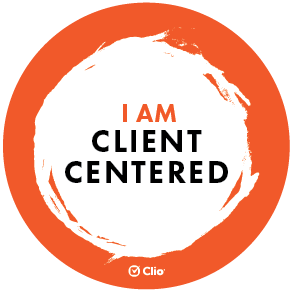We’re privileged in Canada for many reasons, including entertainment industry financial support, including support for our music industry from FACTOR, Canada Council for the Arts, Ontario Arts Council, and more. The reality is that there aren’t enough funds to support everyone. However, there have been hints lately at additional funding.
Also, whether you get funded or not, preparing a grant application is also an opportunity to work on your career’s business plan. This blog’s purpose is to share information about the Ontario Arts Council’s Music Recording Projects program.
Be the first to read new articles, industry news, and more. Sign up to our newsletter today!
Join Our Community
Based in Toronto, the Ontario Arts Council supports artists and organizations but supporting artists across the province working in a variety of styles and genres of music.
Their five music grant categories are Music Creation Projects, Music Organizations: Operating, Music Production and Presentation Projects, Music Recording Projects and Musique – projets francophones.
The Music Recording Projects program supports the recording of music by Ontario-based musicians including composers, songwriters and beat producers. This program has combined and replaced the previous Popular Music and Classical Music Recording programs.
Also to note is that if beat producers are recording beats/soundscapes with the idea that this music will be used for future works by other artists, they should apply to the Music Creation Projects.
This program’s next application deadline is May 16, 2018 at 1:00pm.
Again, that’s May 16, 2018, whether you’re in Windsor, Toronto or Sudbury.
The following deadline is November 15, 2018.
Two Categories
- There are two Music Recording Projects program categories: Demo/EP recordings and Full-length album.
- The EP can be a typical EP, or a series of individually released songs.
- The full-length must be at least 26 minutes, and according to the OAC, should be ready or nearly ready to begin recording.
- They note that if your project features non-Ontario composers, a compelling case must be made for how the project will enhance existing public offerings.
- The OAC may provide up to $5,000 for a Demo/EP recording and $12,000 for a full length album.
Eligibility
- Among other options, you’re eligible if you’re a professional musician and/or composer, and an Ontario resident with a permanent physical address in Ontario. Professional music ad hoc groups/collectives and organizations based in Ontario with a permanent physical address in Ontario are also eligible.
- The OAC defines a professional artist as someone who has developed skills through training or practice, is recognized by artists working in the same artistic tradition, has a history of public presentation or publication, seeks payment for her or his work and actively practices his or her art. Short breaks in artistic work history are acceptable.
- Unfortunately for me, lawyers aren’t eligible, but neither are recording studios, record companies/labels, managers, agents and others.
Expenses That May Be Paid Using The Grant
- The program funds expenses including recording, mixing, mastering, artist and producer fees (including fees to the applicant!), studio and venue rental, art, promo, manufacturing up to a thousand units, and equipment rental.
- The program does not cover expenses for activities that take place outside of Ontario, a re-release of previously recorded material, music videos and more.
- The activities for which you are requesting funding cannot start before the deadline, cannot finish before you receive your grant results (about four months after the deadline) and must be completed no more than two years after you receive the grant results.
- Full-length recording projects are considered complete once the recording is publicly available.
Next Steps
- Read the Guide to OAC Project Programs and Guide to OAC Assessment… and the rest of the details on this grant. This blog is not a replacement for the full guidelines!
- Register with Nova – the OAC’s online grant application system.
- Prepare and submit your application, which includes project information; answers to the application questions on artistic merit, impact and viability; budget; artistic examples (two audio or video examples – no more than five minutes in total); and supporting documents (CV, letters of confirmation from key participants).
To access the deadlines for all OAC programs, click here.
Good luck!
—
Edwards Creative Law is a boutique law firm provides legal services to Music, Film, Animation, TV, Digital Media, Game, Software and Publishing industry clients. For more information and blogs, please visit www.edwardslaw.ca
Regarding music law, Byron Pascoe works with musicians and music companies to assist with record label agreements, publishing contracts, distribution deals, producer agreements, band agreements, etc.
© 2020 Edwards Creative Law
* This blog is for general informational purposes only and is not to be construed as legal advice. Please contact Edwards Creative Law or another lawyer, if you wish to apply these concepts to your specific circumstances.


